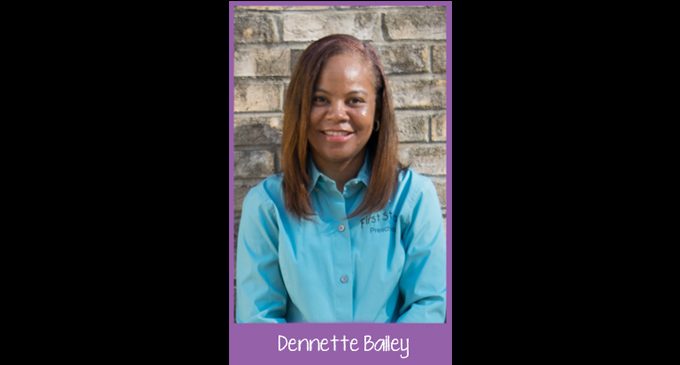Commentary: When forgiveness becomes a distraction
Dennette Bailey

By Dennette Bailey
If you have ever been a victim of a crime (I have) and finally had your day in court, you know that the courtroom is a highly emotional environment. Recently, many representing the media or their faith have been praising early outward displays of forgiveness.
In defining forgiveness, it is described by the Merriam Webster Dictionary as: to cease to feel resentment against (an offender), to pardon and to grant relief from payment. The Bible tells us that God forgave us so we should forgive (Ephesians 4:31-32), that forgiveness is an act of obedience (Matthew 6) and that we should forgive to avoid becoming angry or bitter (Hebrews 12).
However, forgiveness does not require an open declaration for an audience. Jesus and his disciples are an example of this. On the cross, Jesus asked the Father to forgive his offenders. He talked to the Father and not the crowd. After he died and even after he rose, at no time in the Bible do we see the disciples publicly announce their forgiveness to Jesus’ killers, even though we know that as followers, they would have had to come to the state of forgiveness.
Too often the “forgiveness” steals the show of justice. Justice is respected in the Bible. It is not an opposite of forgiveness. It does not need to be balanced out by the forgiveness of other people. Forgiveness is personal (and people do not go into a traumatic situation with all the emotional skills to cope with trauma). Forgiveness offers individuals an opportunity to grow in relationship with their God. It is not, I contend, a place for the courtroom. The courtroom is a place for justice. Forgiveness can easily become pride when one wants to be the savior of others, even though some say they believe in one savior.
For me, being in court and hearing my relative forgive my offender at his sentencing was disheartening, to say the least. Obviously, my relative felt they too were harmed, but the offender was being sentenced because of a crime they committed against me, not for offending or impacting my relative.
Family members and friends certainly can forgive offenders for the suffering they experienced. However, they cannot forgive crimes that were not committed against them. They should not use the victim’s time of justice in the courtroom to announce their forgiveness. It is disrespectful, thoughtless and a distraction. It confuses offenders and the justice system.Sometimes victims feel compelled to offer forgiveness in the courtroom. That is their right. However, I would caution against this. Forgiveness should be viewed as a goal, not as a race. People who offer forgiveness should do so prayerfully and sincerely, not during the heat of emotions, because when things settle, that resentment may come back up and then the premature forgiver will have to deal with feelings of guilt.
An act of love would be for an offender to have the opportunity to reflect on their actions before they are immediately presented with a pardon from a person. If we say we put Christ first, we should want this offender to feel dependent on God for their forgiveness first – as everything and everyone belongs to Him.
Forgiveness is not a badge of honor. It is not proof of how holy or good we are. It is a gift from God that we are to pass on to others.
Regarding gifts, the Bible tells us in Matthew 6:1: “Be careful not to practice your righteousness in front of others to be seen by them. If you do, you will have no reward from your Father in heaven.” Matthew 6:4 says, “… so that your giving may be in secret. Then your Father who sees what is done in secret, will reward you.”










